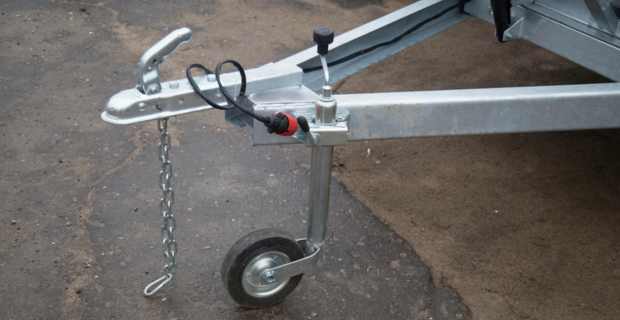Date Published: 2023/11/24
Read Time: mins
Using Your RV Hitch for Storage

No matter what the size of your RV, you may feel like you need more room to pack your clothes, food, and whatever else you usually take on a road trip. Some campers have solved this dilemma using their RV hitch for extra storage space.
While using your RV’s storage hitch provides you with more room in the RV when travelling, you need to consider a few factors before using it for this purpose. First, consider the configuration of your RV to determine whether this will work for you. Another thing to consider is how many items you need to store.
Types of Cargo Carriers to Consider
The hitch-mounted cargo carrier is the most popular type of RV hitch storage. Before installing this carrier to your hitch, ensure its receiver and pin are compatible. Hitch-mounted cargo carriers can be flat, enclosed, in a cage style, or a hitch-and-go.
Another possibility for RV hitch storage is the tongue-mounted RV cargo carrier. You need an A-frame travel trailer to use this type of hitch. People typically use tongue-mounted RV cargo carriers to transport larger items, such as air compressors, coolers, and portable generators.
Tips for installing a cargo carrier to your RV hitch
The manufacturer of your RV should have provided detailed instructions on how to attach a cargo carrier to your hitch. If you need an instruction manual, contact the company to send one or search online for the necessary information. If any concerns regarding the installation process, don’t hesitate to have a professional at your local RV dealer do the installation.
For all makes and models of RVs, you should make sure that you use a locking hitch pin. A high-quality locking pin is essential to securing your belongings as you travel. Be sure to place the cargo carrier in a way that does not block access to other parts of your RV, including the spare tire, propane storage area, or any of its doors. Each time you stop, check the hitch pin to ensure it is fastened securely.
Benefits of RV Hitch Storage
Even if you have enough room inside the RV to store your travel essentials, there may be some things you want to avoid in your driving, sleeping, and eating areas. Fishing gear, jerry cans, and generators are just three typical examples. Securing a cargo carrier to your hitch makes it more comfortable for you and your passengers to move about the RV.
Has minimal effect on fuel efficiency
Cargo that is supported by your RV hitch barely impacts your gas mileage because it has no significant impact on the aerodynamics of your vehicle. Your RV storage hitch differs considerably from a roof rack in this regard. Roof racks significantly impact aerodynamics, which creates drag and changes how the RV handles. Because of this, you need to stop more often to replenish your fuel.
Another way that using your RV hitch makes more sense than investing in a roof rack is the cost. An RV storage container costs up to $200, while a roof rack can cost you $500 or more.
Lightweight and simple to use
If your RV already has a tow hitch attached, installing and uninstalling an RV hitch is simple. Loading your belongings is also easier since you are only lifting them to waist level and not over your head. An RV hitch weighs much less than a roof rack as well.
Potential Downsides to Consider
Although this option is convenient and affordable, you must consider a few drawbacks before committing to it. For example, equipping your RV with hitch storage can make it more difficult to back it in once you reach your campsite. Remembering that the hitch storage is there and knowing how many extra inches or feet of clearance space you need will simplify the backing-in process.
Security can also be a concern. You never want to leave the contents of your cargo carrier unattended when you are away from your RV. Bringing the items inside the RV is one option while securing the storage box with a lock and chain is another.
Make Sure Your Insurance is Updated Before You Head Out
Although we are well into fall, you may be able to squeeze in another trip or two to see Canada’s gorgeous fall colours. We encourage you to contact Orbit Insurance Services before your trip to go over your current policy to determine if you have adequate coverage to meet your needs.
Sources
Camping World's Guide to RV Cargo Carriers - Camping World Blog
The Pros And Cons Of RV Hitch Storage (rvlife.com)